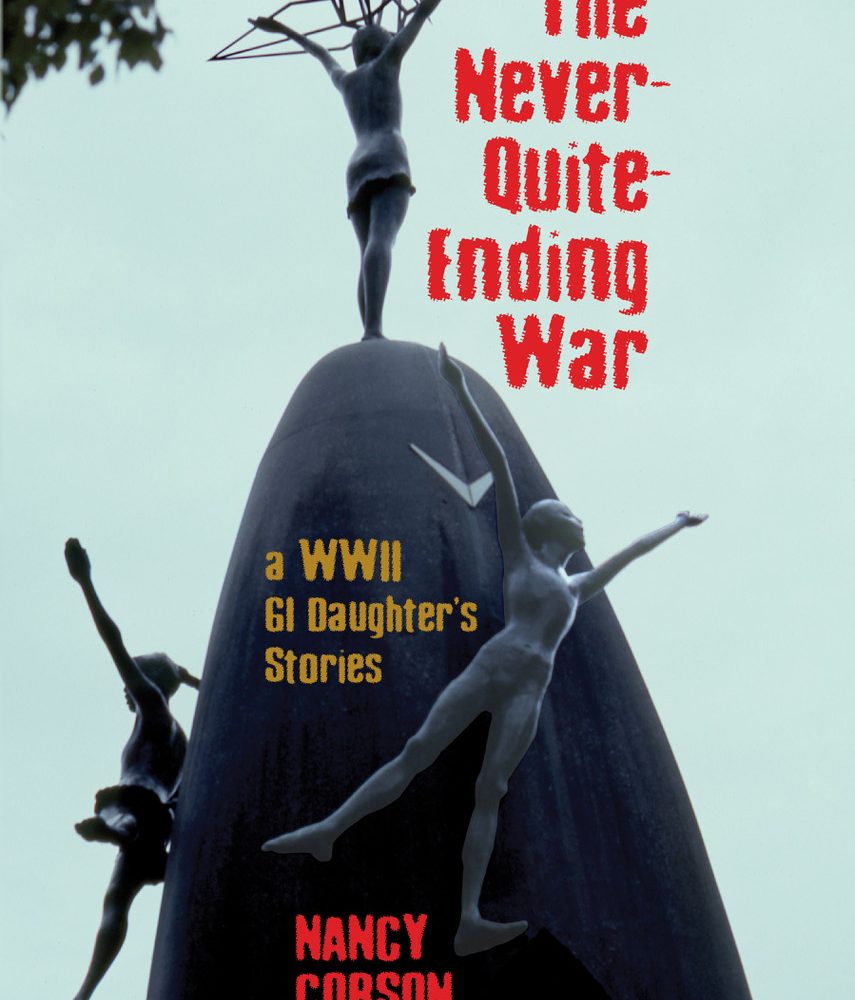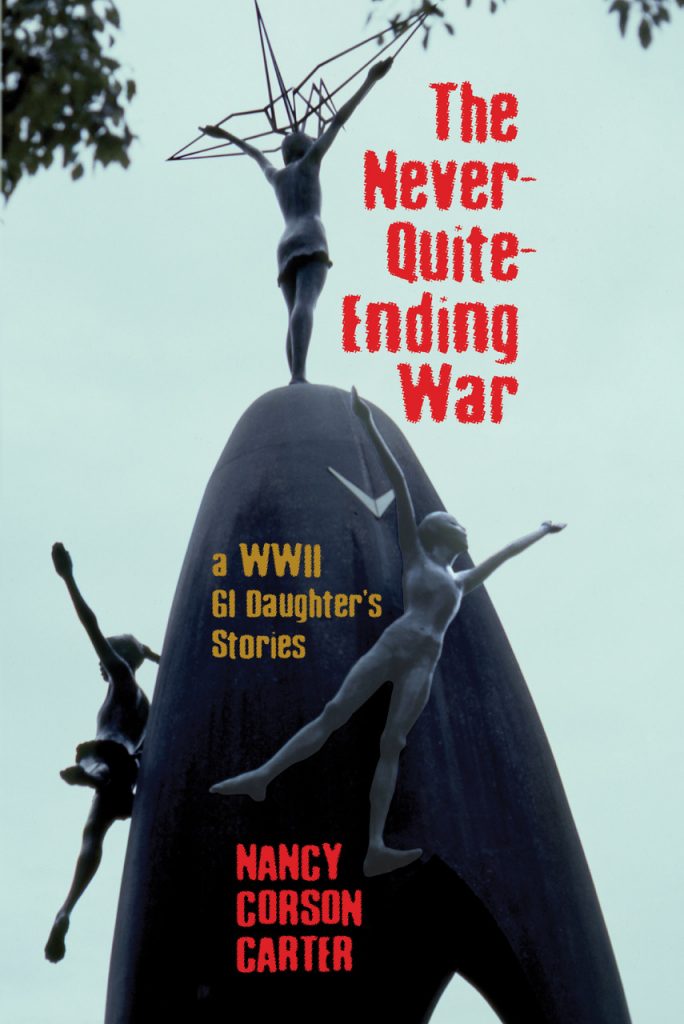
On Wednesday, June 27th, I attended a reading by Nancy Carson Carter on her new book, The Never-Quite Ending War: A WWII GI Daughter’s Stories. Nancy illuminated stories of her family, both those that are her own and others that have passed down to her. Many of the stories she shared with us were typical childhood experiences and family memories that shaped her understanding of self, community, and family. However, these stories were all told with a lens that Nancy has developed years after her childhood. After years of learning, study, research and stories shared, Corson Carter has come to understand her childhood and family dynamics through the everlasting imprint of World War II.
Corson Carter spoke candidly about how the War followed her father for the rest of his life and as such, it stayed with her family too. Her father joined the military because “nobody in the Corson family fought in World War I, so I have to go, there’s honor to uphold”. She recounted the various ways patriarchal culture structured her father’s entrance into the War and parenting of his children, all of whom were girls. For example, the family’s desperation for a son manifested in her Father’s embarrassment and anger. A constant question that Nancy poses to the reader is, “What if I had been a son?” It is this question that permeated much of Nancy’s discussion on patriarchy, the War and how it was commonplace for men who had come back from World War II to “not talk about the war.” She wondered if her father would have shared more about the War with sons, had he had any.
The author’s storytelling relies heavily on visuals and poetry. She narrated her story with a photo board that contained newspaper clippings, photographs, maps and printed articles. It was a replica of the bulletin board she used in her writing process to connect her family’s story with broader narratives of the War. Additionally, she gave the audience great insight into the ways in which she utilizes haikus, letters to her dad, maps, and photographs in her book as a medium of connection and intimacy between the War, her father (who passed away in 1996) and her family experiences. Perhaps, it is in these visuals and poems that one can best communicate longing and desires for understanding home, belonging and personhood.
Ultimately, Nancy reminds us that war never ends, as the aftermath is consequential and has everlasting effects for those who go to war, those who are victims of war, those who have loved ones in war, those who stay at home, and generations that come after its “formal ending.” Wars are never just events, but rather worlds that continue to shape the personal, the political and the relational. We are still haunted in the aftermath of our wars. As such, Nancy ensures that we remember that healing is intimate, and peace is too.

Jeanette just told me about this blog, and I’m glad to have seen it. Thanks so much for your thoughtful review, Melissa! I enjoyed that evening very much.
Nancy CC